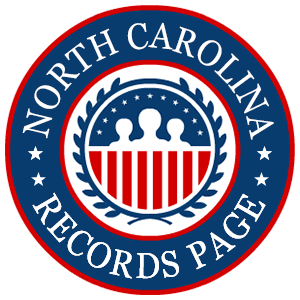Conduct a free North Carolina warrant search today to track down further information on any wanted individual in the state.
While warrants and other court orders are generally public information and protected by the Freedom of Information Act (FOIA), some details may not be available until after the order served. For example, search warrants are often kept confidential to avoid the destruction of evidence.
This resource provides in-depth guidance on how to find out about open warrants, what to do to resolve one, and how to navigate resources in North Carolina.
Can Anyone View Warrants Issued in North Carolina?
Most warrant types are accessible to the public in North Carolina as mandated on Chapter 132 of the State’s Public Records Law.1
This law made government records, including warrants available for public inspection and copying upon request. However, there are limitations which may vary depending on the type of warrant and the state of legal orders. Records that are related to ongoing investigations are kept confidential and may not be accessible unless it has been executed.
There are several types of warrants, and some may be accessible through official sources like county databases or county clerks offices. Some custodians offer online tools, while others may require a formal request or call the specific law enforcement agency.
Essential Insights To Perform a Warrant Search in NC
The more information available when performing a North Carolina warrant lookup, the more likely it is to be successful. Most searches require at least a first or last name and the state where the warrant was issued.
In many cases, first and last name is required, though some warrant search databases also use aliases and nicknames. The more information available, the fewer the number of search results, making it easier to get accurate results.
While access to warrant information is typically free, it’s not always convenient to access in North Carolina. The lack of a statewide database means a “Right to Review” request may be the most effective method to search multiple counties, but it comes with a fee.2
Understanding which agencies are most likely to have warrant information and how to make an information request can speed up the process. When you run a North Carolina legal order search, be sure about the county where the offense occurred and explore public records at that county’s courthouse.
How To Run a Free North Carolina Warrant Search
To run a free warrant search in North Carolina, start by using official resources. You can search on the state, county and city levels.
At the state level, warrant information is available online, in person and by mail. To get information about a person or case, follow these steps:
Online Access: North Carolina State Courts offer a quick case search portal that contains all information pertaining to a specific case.3 This includes any warrants issued pertaining to that case number.
However, not all counties currently participate. Out of 100 counties, only 5 were enrolled by the end of 2023, with an additional 12 planning to join in early 2024. To use the state search tool, researchers need the name or a known alias of the defendant or the case number.
With that information, searchers can then filter results to only display criminal cases and use other information such as date of birth, gender, date of incident and other case-specific information to narrow down the number of results in a warrant search.
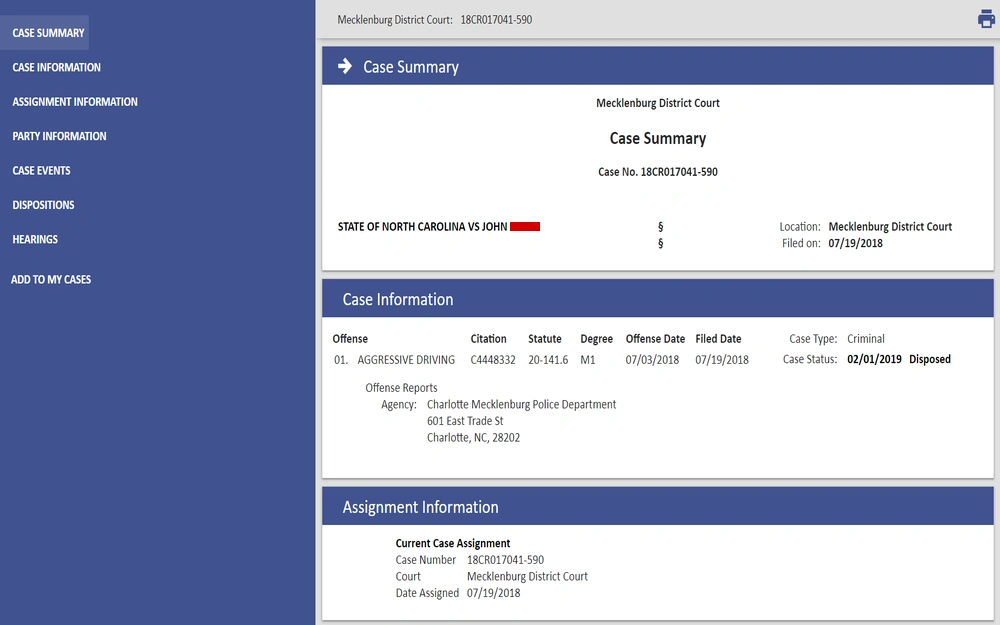
In-Person Searches: To use a free public access terminal to get warrant information in a county not enrolled in the eCourts system, searchers will need to go to a local courthouse building. The County Clerk’s Office is typically located in one of these buildings, along with public terminals. These terminals are free to use, though the county clerk may charge for copies, if needed.
Find the courthouse location nearest you on the North Carolina Judicial Branch locations search page. When using a public terminal, searchers can also use witness names or the name of the victim to find a specific case file.
While all North Carolina residents have access to the information with an in-person visit to the local County Clerk’s office, those who live out-of-state and lack physical access might need to use a third-party site or a mail-in option to obtain the information.
By Mail: To request a criminal history report on an individual by mail, seekers can send in a copy of a Criminal Record Search Form to the local county clerk’s office. A $25 fee must be paid with a certified check or money order to make a mail-in request. It’s important to note that the information provided will be county-specific, not statewide.
There’s also an option to sign up for real-time access to all public records in North Carolina. This service is aimed at third-party sites that offer public records access and comes with significant costs:
- $495 one-time connection fee
- $70 one-time fee for additional sign-in credentials past the first two
- $0.21 per record accessed (billed monthly)
At the North Carolina State Bureau of Investigation, agents serve the residents of the state through eight district offices situated throughout the state. Investigative support is given to local law enforcement agencies in criminal cases upon request. This includes background checks, warrant execution and probation or parole violations.
The “Right to Review” allows North Carolina residents to perform a statewide criminal background check on themselves. To submit a request for review, provide the following information:5
- Complete Name & Address
- Race
- Sex
- Date of Birth
- Social Security Number (Optional)
- Legible Set of Fingerprint Impressions
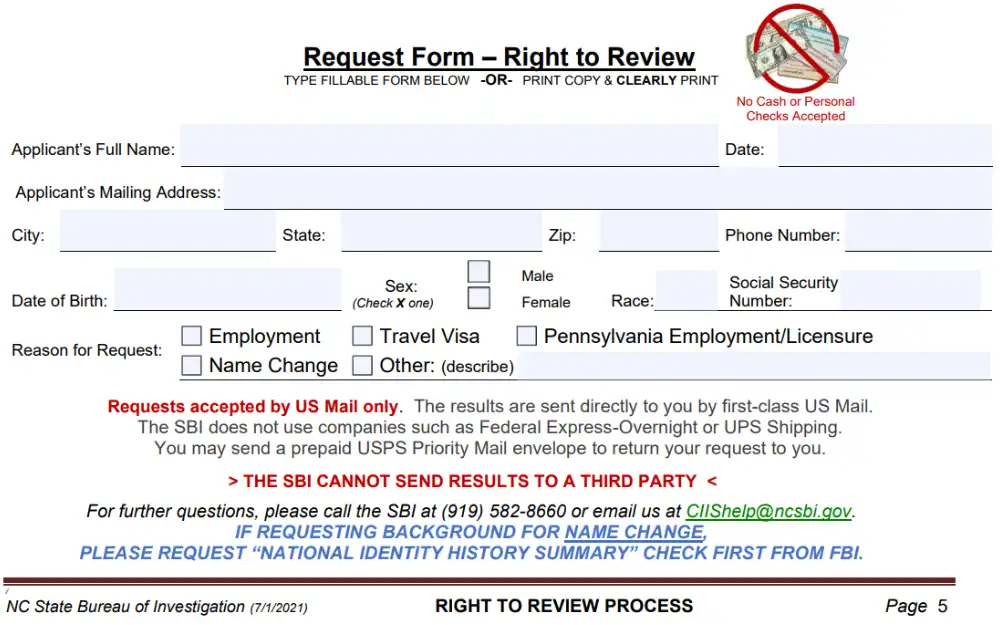
A certified check or money order for $14 must accompany the completed form and be mailed to:
NC State Bureau of Investigation
Criminal Information & Identification
Attn: Civilian Services Unit — Right to Review
PO Box 29500
Raleigh, NC 27626-0500
For any questions about the process, call (919) 582-8660 or email [email protected].
Locate Warrants in North Carolina via County Courts, Clerks of Courts & Sheriffs’ Offices
Since North Carolina warrant search options don’t include a statewide database, searchers may need to access information at the county level.
Below, you’ll find a quick guide to the process for three of the most populous counties in North Carolina.
Wake County: One of the five North Carolina counties that participate in the eCourts system, you can access Wake County warrant information online through the case search tools or through the Clerk’s Office. Visit or call:
Wake County Courthouse
County Clerk’s Office
316 Fayetteville Street
Raleigh, NC 27601
When using the online system, input the individual’s name, alias or court number and use the advanced filter to select criminal cases. Then, select the court case in question and look for any issued warrants.
Another option to lookup warrant information is through the Wake County Sheriff’s Office. Records may be requested via their Online Public Records Request Portal or reaching out the Wake County Sheriff’s Office Record Division at:6
Wake County Sheriff’s Office
Records Division
330 S. Salisbury St., Ste. 2nd Fl Records S208
Raleigh, NC 27601
Fax: 919-743-7372
Email: [email protected]
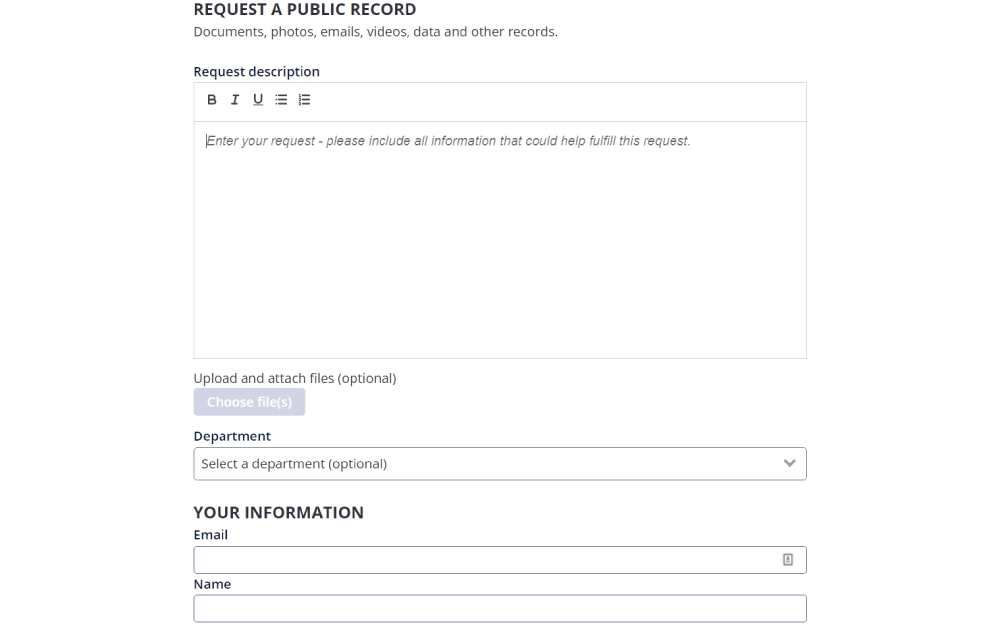
Mecklenburg County: Mecklenburg County participates in eCourts. Anyone can access Mecklenburg County warrant information through the Sheriff’s Office Warrant Inquiry.8 Providing the subject’s first and last name can initiate the search. Records can also be requested via Public Information Request or visiting the departments for in-person results at:
Mecklenburg Courthouse
832 East Fourth Street
Charlotte, NC 28202
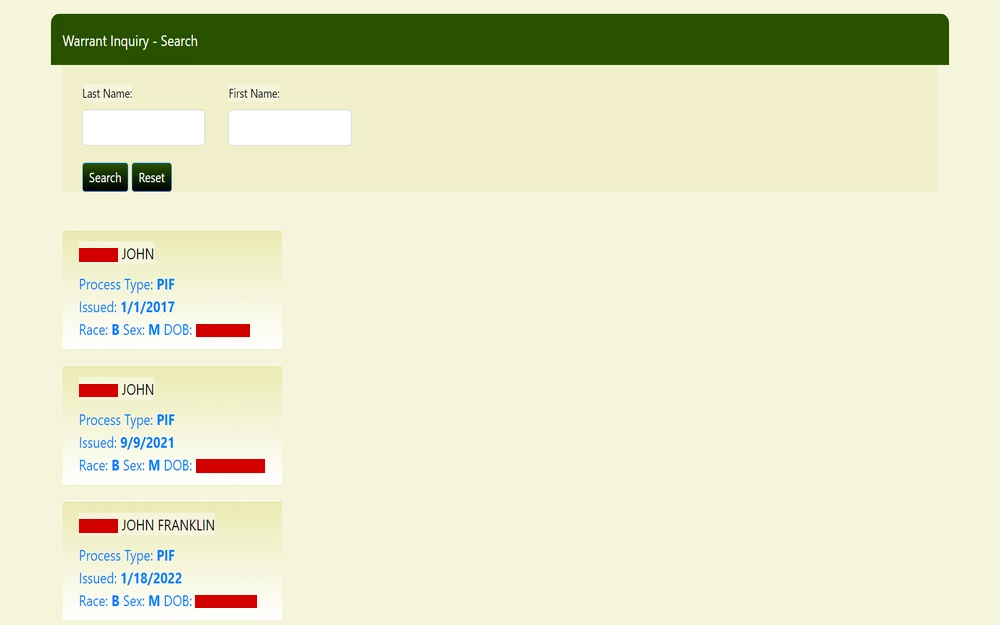
Guilford County: Guilford County participation in eCourts begins at the end of April, 2024. Warrant records can also be accessed at the Guilford County Sheriff’s Office via an in-person visit or by telephone.
Call 336-641-2727 during normal business hours or 336-641-3355 on nights and weekends for requests in Greensboro or 336-641-7907 during normal business hours or 336-641-3355 on nights and weekends for requests in High Point. To make an in-person visit, go to:
GCSO Warrant Office
201 South Edgeworth Street
Greensboro, NC 27401
or
GCSO Warrant Office
507 East Green Drive
High Point, NC 27260
Probation & Parole Violation Warrant Fugitive List
North Carolina has no statewide published list of parolees and probationers who’ve violated their agreements and are now wanted fugitives. However, most counties publish an active wanted list.
If you know where someone is serving their parole or probation, you can get in touch with the local office to report a violation, ask questions or find out if someone is on the wanted list.
In Burke County, you can view the most wanted list online. The same is true for Halifax County, Buncombe County and Rowan County, just to name a few.9 Search for the wanted list along with the specific county name to locate online access for a specific county.
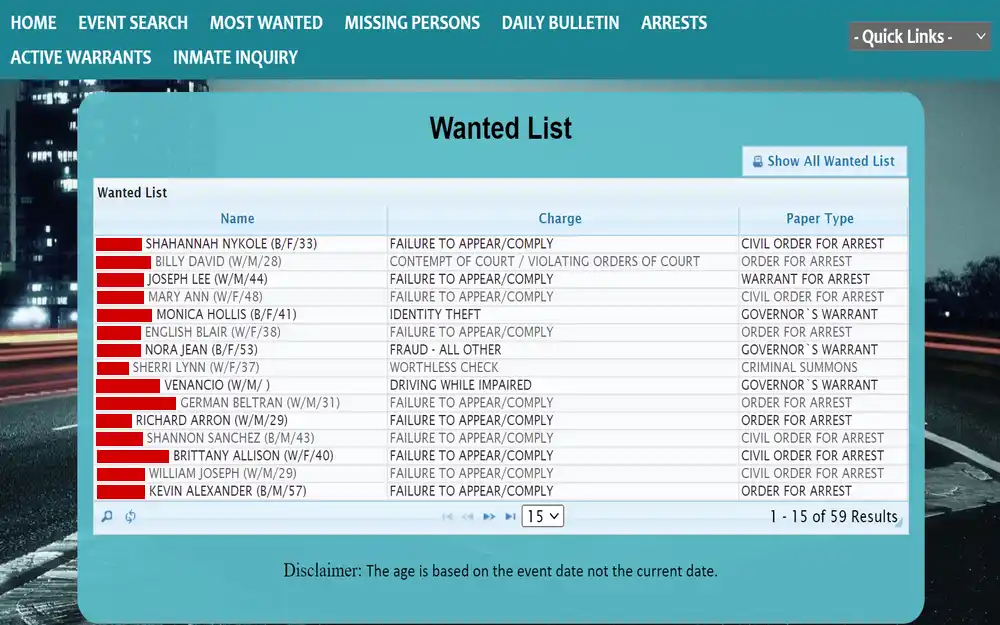
Check Arrest Warrant Details Through Municipalities in NC
Kickstart a warrant search by starting with some of the largest cities in the state. Below are resources for active warrant lists available to the public.
Charlotte: Served by the Charlotte-Mecklenburg Police Department, city residents must contact law enforcement or make a public record’s request for information about outstanding warrants specific to the city.10
Charlotte-Mecklenburg Police Department (CMPD)
Warrant Search
119 East 7th Street, #2B
Charlotte, NC 28202
Another option is to contact the Charlotte City Clerk’s Office at 704-336-2248 or [email protected].
Raleigh: In Raleigh, all warrant records and court report requests are handled by the Wake County Clerk of Court’s Office per their public records information availability. Contact the office in person of over the phone at:
Wake County Courthouse
County Clerk’s Office
316 Fayetteville Street
Raleigh, NC 27601
Greensboro: The Greensboro Police Department provides information about active warrants on request via phone. Contact the Records Section at 336-373-2435 to check on active warrants for an individual. Reach out to the Greensboro Police Department at
Office of the Chief of Police
100 E. Police Plaza, 5th Floor
Greensboro, NC 27401
Fax: 336-373-7721
The department also provides a List of Most Wanted Individuals.
Durham: The Durham Police Department provides warrant information upon request to the Records Division. Either visit in-person or call the department for more information.
Durham Police Department
Records Division
602 East Main Street
Durham, NC 27701
Phone: 919-560-44236
Winston-Salem: There are two options that provide warrant information in Winston-Salem. The Wanted List published by the Winston-Salem Police Department includes a list of all active arrest warrants.11 For information about other types of warrants, contact the police department’s Records Division by phone at 336-773-7922 or email at [email protected].
Expand Your Search Beyond North Carolina & Access Federal Warrants
State warrants are only part of the picture. The federal government can, and does, execute all types of warrants in pursuit of criminals. To obtain information about federal warrants, you have several options.
First, start by looking at wanted fugitive lists. If you or someone you know is on a wanted list, there’s typically a warrant issued for arrest. Start with the Federal Bureau of Investigation, Drug Enforcement Administration and the U.S. Marshals.12
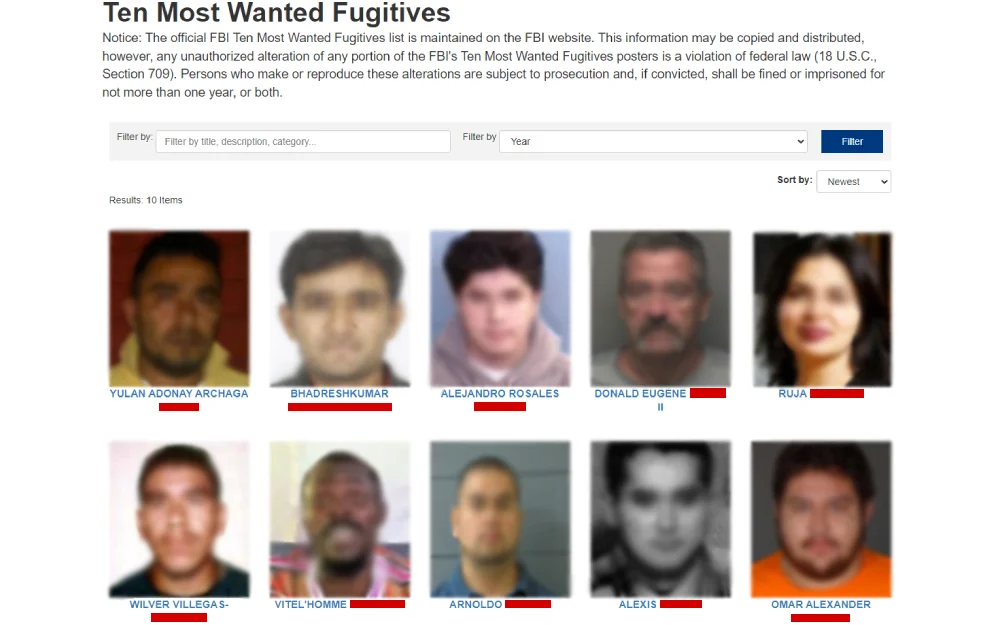
To utilize a single tool that searches most federal records at once, there’s Public Access to Court Electronic Records (PACER). Created after the passage of the Freedom of Information Act, PACER provides access to all court case information handled by federal courts. This includes warrant and arrest searches.
To use PACER, input the name of the person and click “Case Number.” Then, look at the docket sheet for the case or the history. Any warrants issued by the judge overseeing the case should be recorded.
PACER isn’t a free service, though some users may be able to ask for a fee exemption. Generally, PACER charges by the page for search results.13
Various Types of Warrants in NC & the Reason for Each
Warrants are court orders that authorize police departments and other law enforcement agencies to take actions that would otherwise be prohibited by law. One of the most common types of warrants is an arrest warrant; other types are listed below as well, with a brief description of each.
- Arrest Warrant: When a suspect is being charged with a crime, courts typically issue an arrest warrant that allows police to detain the individual pending trial. In some cases, they may release a suspect on bail, while in others, the suspect remains jailed until their case closes.
Courts issue arrest warrants when there’s enough evidence to bring a case against someone for a criminal act, whether a misdemeanor or felony. A judge typically issues an arrest warrant any time someone must appear before the court pending a trial.
- Bench Warrant: When you have a court date or are ordered to appear in court and fail to show up, a judge may issue a bench warrant. Missing jury duty, avoiding an order to testify or absconding before your trial are all possible reasons for a judge to issue a bench warrant. A judge may issue a bench warrant for both civil and criminal cases.
- Probation & Parole Violation Warrants: When someone released early from prison or who agrees to community monitoring to avoid a jail sentence fails to live up to the terms of the agreement, they violate their probation or parole and may have a warrant issued. Missing check-ins with a parole officer, failing a drug test or committing a new offense might all be reasons a court would revoke parole or probation.
- Traffic Warrant: Courts issue traffic warrants when a suspect may have committed a criminal traffic violation that requires a court appearance. In North Carolina, traffic warrants are often issued due to serious motor vehicle charges such as DUI or reckless driving but can also occur when drivers fail to pay fines or are in danger of losing their license.
- Child Support Warrant: When a parent fails to meet their court-ordered financial obligations to a child, a child support warrant may be issued. Those who fall behind on child support or stop paying it entirely may have a child support warrant issued. This is usually an action of last resort, since imprisoned parents can’t provide financial support to their children.
- Capias & Capias Pro Fine Warrants: Capias and capias pro fine warrants may be issued when someone fails to pay court-ordered fines, fees or restitution. A judge may issue these warrants whenever someone is ordered to pay a fine and fails to do so within the legal limits. These warrants often serve as an opportunity for individuals to explain their financial difficulties and make payment agreements for a longer term.
- Fugitive Warrant: Those who run after being served with an arrest warrant or who avoid being served may have a fugitive warrant issued to enable pursuit into other jurisdictions. Those who actively attempt to avoid arrest or skip court and run may be issued a fugitive warrant. Another example of when these warrants may be issued is when a sex offender fails to update the registry when they move.
- Search Warrant: Search warrants are granted to law enforcement, allowing them to search private property to find evidence of a suspected crime. Law enforcement officers need probable cause to obtain a search warrant, which may involve witnessing possible criminal activity or substantial circumstantial evidence that a location may have more evidence about the crime.
Steps To Consider if You or Someone Else Has an Active Arrest Warrant in North Carolina
Finding out there’s an active warrant for you or someone you know is often very stressful. However, there are some steps that can help streamline the resolution process.
For Someone Else With a Warrant: Notify them immediately. If you discover a friend or family member has an active warrant, let them know so they can take further action.
If you have a safety concern about someone with an active warrant or believe that person is a danger to others, you can call in an anonymous tip to the North Carolina State Bureau of Investigation at 1-800-334-3000 or use the online contact form.14
If You Have an Active Warrant: Get legal counsel. Some warrants can be resolved simply by paying any outstanding fines and/or setting a court date.
For others, you’ll need to make arrangements to turn yourself in. Your lawyer can help negotiate this process while you contact family members and friends.
It’s important to let loved ones know about any pending litigation so you can get the support and help you need during this stressful time. Also, take the time to contact a bail bondsman to line up funding for your release. While not everyone is eligible for bail, it’s offered for the vast majority of nonviolent offenses.
Understanding which agencies are most likely to have warrant information and how to make an information request can speed up the process. When you run a North Carolina warrant search, be sure about the county where the offense occurred and explore public records at that county’s courthouse.
You can also look up free North Carolina public information (marriages, divorces, births, deaths, property, etc.) and access NC arrest and criminal history details for further insight into anybody in the state.
References
1North Carolina General Assembly. (n.d.). Public Records. Retrieved March 27, 2024, from <https://www.ncleg.net/enactedlegislation/statutes/html/bychapter/chapter_132.html>
2North Carolina State Bureau of Investigation. (2021, July 1). Right to Review Process. Retrieved March 27, 2024, from <https://www.ncsbi.gov/Services/SBI-Forms/SBIRight-to-Review__FILLABLE-2021.aspx>
3North Carolina State Courts. (n.d.). eCourts Portal. Retrieved March 27, 2024, from <https://portal-nc.tylertech.cloud/Portal/>
4North Carolina State Courts. (2024). Smart Search. Retrieved March 27, 2024, from <https://portal-nc.tylertech.cloud/Portal/Home/Dashboard/29>
5North Carolina State Bureau of Investigation. (n.d.). Personal Review. Retrieved March 27, 2024, from <https://www.ncsbi.gov/Services/Background-Checks/Personal-Review>
6Wake County. (n.d.). Wake County Public Records. Retrieved March 27, 2024, from <https://wakecounty.nextrequest.com/>
7Wake County. (n.d.). Request a Public Record. Retrieved March 27, 2024, from <https://wakecounty.nextrequest.com/requests/new>
8Mecklenburg County Sheriff’s Office. (2024). Warrant Inquiry – Search. Retrieved March 27, 2024, from <https://mecksheriffweb.mecklenburgcountync.gov/Warrant>
9Rowan County Sheriff’s Office. (n.d.). Wanted List. Retrieved March 27, 2024, from <https://ossip2c.rowancountync.gov/p2c/wantedlist.aspx>
10City of Charlotte. (n.d.). Request a Public Record. Retrieved March 27, 2024, from <https://www.charlottenc.gov/Services/Request-a-Public-Record>
11City of Winston-Salem. (n.d.). Police Department. Retrieved March 27, 2024, from <https://www.cityofws.org/319/Police-Department>
12Federal Bureau of Investigation. (n.d.). Ten Most Wanted Fugitives. Retrieved March 27, 2024, from <https://www.fbi.gov/wanted/topten>
13Public Access to Court Electronic Records (PACER). (n.d.). PACER Pricing: How fees work. Retrieved March 27, 2024, from <https://pacer.uscourts.gov/pacer-pricing-how-fees-work>
14North Carolina State Bureau of Investigation. (n.d.). Contact Us. Retrieved March 27, 2024, from <https://www.ncsbi.gov/Contact-Us>
